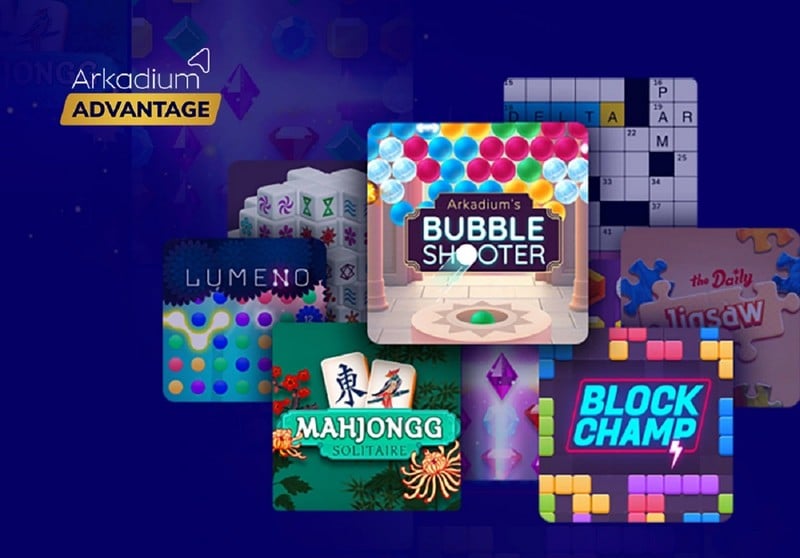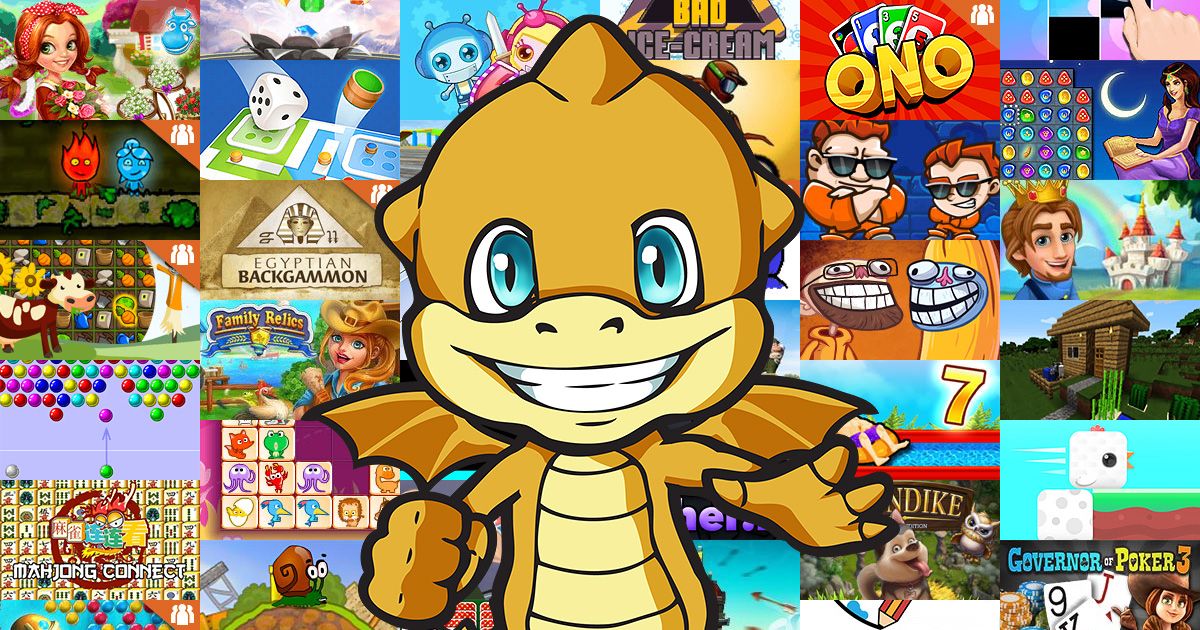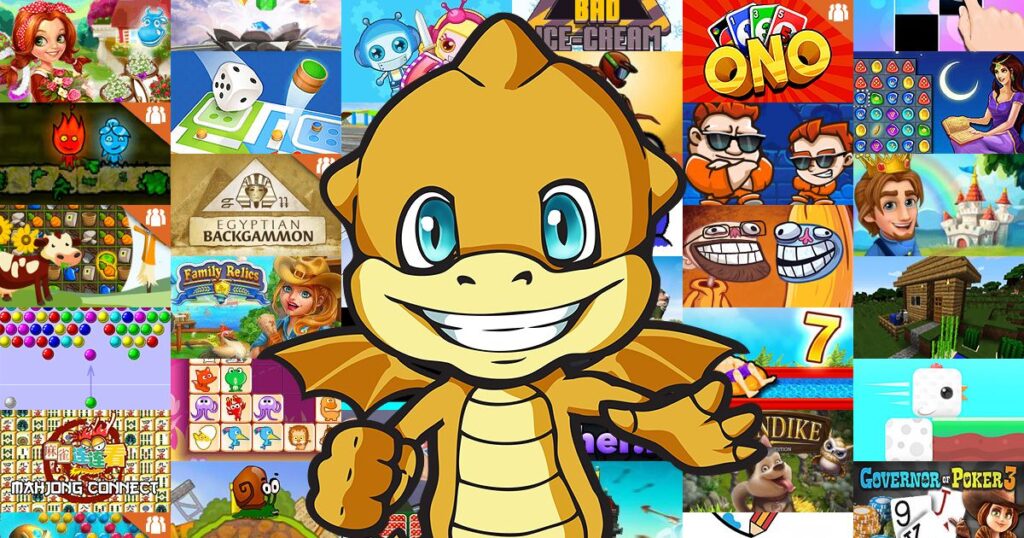game online web sets the stage for this enthralling narrative, offering insights into a vibrant realm where players connect and compete across the globe. Online gaming has become a cornerstone of modern digital interaction, evolving from simple text-based games to immersive virtual worlds that captivate millions. With a staggering rise in users, the online gaming community continues to grow, showcasing its undeniable significance in today’s entertainment landscape.
As we delve into the various types of online games, we uncover an array of genres from MMORPGs to casual titles, each offering unique experiences and engaging gameplay mechanics. The technology propelling these games forward is equally fascinating, with advancements in cloud gaming and game development engines shaping accessibility and player engagement. Additionally, we will explore the vibrant communities surrounding online gaming that enhance social connections and player experiences, as well as the monetization strategies that fuel this booming industry.
Introduction to Online Gaming

Online gaming has transformed the way individuals engage with entertainment and each other in the digital realm. It encompasses a vast array of games played over the internet, ranging from casual mobile games to intricate multiplayer online experiences. The significance of online gaming lies in its ability to connect players worldwide, fostering communities and offering immersive experiences that are redefining modern leisure activities.
The evolution of online gaming can be traced back to the early days of networked computer games in the 1970s and 1980s, which laid the groundwork for what we know today. The introduction of the internet in the 1990s was a pivotal point, enabling multiplayer experiences and the rise of genres such as MMORPGs (Massively Multiplayer Online Role-Playing Games). Over the years, advancements in technology, such as faster internet connections and the development of powerful gaming consoles, have propelled the online gaming industry into a billion-dollar market. Today, platforms like Steam, PlayStation Network, and Xbox Live facilitate millions of connections, allowing players to engage in diverse gaming experiences anytime and anywhere.
Growth of Online Gaming Users
The rapid growth of online gaming users globally is a testament to its widespread appeal. Recent statistics indicate that the number of online gamers has surged significantly, reflecting changing entertainment habits.
- As of 2023, there are over 3 billion gamers worldwide, a figure that has doubled in the last decade.
- According to Newzoo, the global gaming market is projected to generate over $200 billion in revenue by 2023, driven by increased mobile and online gaming engagement.
- The rise of esports has also contributed to the growth, with millions tuning in to watch competitive gaming events, further enhancing the community aspect of online gaming.
The demographic profile of online gamers is also diverse, encompassing various age groups and backgrounds. The accessibility of mobile gaming has particularly expanded the audience, allowing even those with minimal gaming experience to participate.
The online gaming community has not only become a significant segment of the entertainment industry but has also influenced social interactions and cultural trends worldwide.
Types of Online Games
Online gaming has evolved into a multifaceted entertainment medium, offering diverse genres that cater to different player preferences. Each genre has its unique characteristics, gameplay mechanics, and community engagement, making online gaming a vibrant and dynamic landscape. Understanding these genres can enhance a player’s experience by aligning their interests with the right type of game.
The various genres of online games include MMORPGs (Massively Multiplayer Online Role-Playing Games), FPS (First-Person Shooters), and casual games, among others. Each genre appeals to different demographics and provides distinct gaming experiences. Below is an exploration of these genres, highlighting their characteristics and the reasons behind their popularity.
MMORPGs, Game online web
Massively Multiplayer Online Role-Playing Games (MMORPGs) are known for their expansive worlds and immersive storytelling. Players create characters and embark on quests, often collaborating with thousands of others in a persistent online environment. The depth of character customization, the complexity of the storylines, and the importance of player cooperation are core attributes of this genre.
FPS
First-Person Shooters (FPS) emphasize fast-paced action and precise shooting mechanics. Players experience the game through the eyes of their character, which enhances immersion. The appeal lies in competitive gameplay, often featuring team-based objectives and skill-based mechanics. Popular titles like “Call of Duty” and “Counter-Strike” exemplify the intense and tactical nature of FPS games.
Casual Games
Casual games are designed to be accessible to a broad audience, often featuring simple mechanics and shorter play sessions. These games, such as “Candy Crush” or “Among Us,” place a premium on fun and social interaction rather than complex strategies. The low barrier to entry and engaging gameplay contribute to their widespread popularity.
Comparison of Online Game Genres
To better understand the differences and appeals of various online game genres, the following comparison table highlights key features:
| Genre | Key Features | Target Audience | Examples |
|---|---|---|---|
| MMORPG | Expansive worlds, character customization, persistent online environment | Dedicated gamers, fantasy enthusiasts | World of Warcraft, Final Fantasy XIV |
| FPS | Fast-paced action, competitive gameplay, team dynamics | Action enthusiasts, competitive players | Call of Duty, Apex Legends |
| Casual Games | Simple mechanics, social interaction, short play sessions | All ages, casual gamers | Candy Crush, Among Us |
The diversity of online game genres allows players to find experiences that resonate with their interests and play styles. Whether one is drawn to the epic quests of MMORPGs, the adrenaline of FPS battles, or the lighthearted play of casual games, the online gaming world has something for everyone.
Technology Behind Online Gaming
The digital landscape of online gaming is shaped by a variety of technologies that work together to create immersive experiences for players. Game developers leverage advanced engines and programming languages to build engaging environments, dynamics, and interactions, elevating the online gaming experience to new levels. Understanding these technologies provides insight into how games are created and the future possibilities within this ever-evolving industry.
Game development relies heavily on specific programming languages and game engines that streamline the creation process. Popular programming languages such as C++, C#, and JavaScript are integral to game development, each offering unique advantages that influence performance and gameplay mechanics. On the other hand, game engines serve as the backbone of game creation, enabling developers to focus on creative aspects while the engine manages the technical details.
Game Development Engines
Game development engines are essential tools that provide a framework for building games. They come with built-in features like graphics rendering, physics simulation, and scripting capabilities. Below is a comparison of some of the most popular game development engines currently used in the industry:
| Game Engine | Primary Language | Key Features | Platforms Supported |
|---|---|---|---|
| Unity | C# | Cross-platform, Asset Store, VR/AR support | PC, Consoles, Mobile, VR |
| Unreal Engine | C++ / Blueprints | High-fidelity graphics, Blueprint visual scripting, Marketplace | PC, Consoles, Mobile, VR |
| Godot | GDScript, C# | Open-source, Lightweight, Scene system | PC, Mobile, Web |
| GameMaker Studio | GML | 2D game development, Drag-and-drop interface | PC, Consoles, Mobile |
The evolution of cloud gaming has significantly impacted accessibility in online gaming. By allowing players to stream games directly from remote servers rather than relying solely on local hardware, cloud gaming eliminates barriers to entry. Players can engage in high-quality gaming experiences on lower-end devices, as long as they have a stable internet connection. This technology facilitates wider access to a broader audience, paving the way for a more inclusive gaming community.
“Cloud gaming transforms the way players access and experience games, democratizing play across diverse hardware.”
The integration of these technologies continues to push the boundaries of what is possible in online gaming. As developers explore new avenues for innovation, the landscape will evolve, delivering richer and more engaging experiences to players around the globe.
Online Gaming Communities: Game Online Web

Online gaming communities play a crucial role in the gaming landscape, serving as hubs where players can connect, share experiences, and enhance their gaming journey. These communities foster a sense of belonging and provide a platform for交流交流 among enthusiasts who share similar interests and passions for gaming.
The importance of online communities in gaming lies in their ability to enhance player experiences and engagement. Through forums and social media platforms, players can discuss strategies, share game tips, and form friendships. Such interactions contribute to a deeper understanding of the games, as players can collaborate and communicate with one another beyond the constraints of the gaming environment. Furthermore, they can engage in discussions about game lore, create fan art, or even collaborate on projects related to their favorite titles.
Popular Platforms for Gaming Discussions and Communities
Several platforms have emerged as significant gathering places for gamers, allowing them to connect and share their gaming experiences effectively. Each platform serves unique purposes and caters to different aspects of gaming culture.
- Reddit: Subreddits like r/gaming and r/games offer a space for players to share news, experiences, and engage in discussions. These forums often feature AMAs (Ask Me Anything) with game developers, providing insights into the industry.
- Discord: A real-time communication platform, Discord allows gamers to join servers dedicated to specific games or communities. This fosters lively discussions through voice and text channels, enhancing teamwork and camaraderie among players.
- Steam Community: Built into the Steam gaming platform, the Steam Community provides forums, guides, and user-generated content. Players can connect with others who own the same games, share achievements, and participate in community events.
- GameFAQs: This platform contains a wealth of player-generated guides, discussion boards, and FAQs, allowing players to seek help or share their knowledge on various games, from classic titles to the latest releases.
- Facebook Gaming Groups: Many players use Facebook to find community groups dedicated to specific games. These groups facilitate discussions, event planning, and social interactions among players.
“Communities are not just about playing games; they are about building relationships that transcend the virtual world.”
In engaging with these platforms, players not only improve their gaming skills and understanding but also contribute to a vibrant culture that celebrates shared passions and collaborative experiences in the world of online gaming.
Monetization Strategies in Online Gaming
The online gaming industry has evolved into a multi-billion-dollar sector, utilizing diverse monetization strategies to generate revenue while enhancing player experiences. Understanding these strategies is crucial for developers and gamers alike, as they shape the dynamics of gameplay, community engagement, and overall satisfaction.
The primary monetization methods in online gaming include microtransactions, subscriptions, and advertising. Each method presents unique advantages and challenges that impact both developers and players.
Microtransactions
Microtransactions involve small purchases made within a game, allowing players to buy virtual goods, cosmetics, or game enhancements. Games like “Fortnite” and “League of Legends” have successfully adopted this model, offering in-game items that do not necessarily affect gameplay balance but enhance the player’s experience.
– Pros for Developers:
– Increased revenue through continuous spending
– Flexibility to release new content regularly
– Potential for building a loyal player base drawn by exclusive items
– Cons for Developers:
– Risk of backlash from players if perceived as “pay-to-win”
– Need for constant updates to maintain interest
– Balancing monetization with fair play to avoid alienating users
– Pros for Players:
– Opportunity to customize gameplay experience
– Low-cost entry points for accessing the game
– Ability to choose purchases, enhancing gameplay without mandatory fees
– Cons for Players:
– Potential for excessive spending, leading to financial concerns
– Frustration with necessary purchases for competitive advantage
– Possible impact on game balance due to disparities in player investments
Subscription Models
Subscription-based models require players to pay a recurring fee to access the game, offering full access to content and features. Popular games such as “World of Warcraft” and “Final Fantasy XIV” exemplify this strategy, delivering expansive worlds and regular content updates through a subscription framework.
– Pros for Developers:
– Stable and predictable revenue stream
– Enhanced player retention through commitment to payment
– Ability to invest in long-term game development and content creation
– Cons for Developers:
– Higher initial barrier for new players
– Pressure to deliver consistent content to justify costs
– Risk of losing subscribers if updates are insufficient
– Pros for Players:
– Access to all content without additional purchases
– Continuous updates and expansions, ensuring a dynamic experience
– Sense of community and engagement through subscription-based events
– Cons for Players:
– Ongoing costs can add up over time
– Pressure to play regularly to justify the subscription
– Limited choice in terms of gameplay if unable to afford the subscription
Successful Games and Their Monetization Approaches
Various successful online games have demonstrated effective monetization strategies that can serve as benchmarks for developers and industry newcomers. Below is a list showcasing these games alongside their monetization methods:
- Fortnite: Microtransactions for cosmetic items and battle passes.
- League of Legends: Microtransactions for champions and skins.
- World of Warcraft: Subscription model with expansion packs.
- Final Fantasy XIV: Subscription model with regular content updates.
- Genshin Impact: Gacha mechanics for character and weapon acquisition.
- Apex Legends: Microtransactions for cosmetics and battle pass system.
Challenges in Online Gaming
Online gaming, while offering an immersive and engaging experience, is not without its challenges. Players frequently encounter issues such as cheating and toxicity, which can undermine the spirit of fair play and community interaction. Understanding these challenges is crucial for both players and developers in fostering a healthier gaming environment.
Cheating remains a pervasive problem in online gaming. It can take various forms, including hacking, exploiting glitches, and using third-party software to gain unfair advantages. Toxicity, on the other hand, manifests through negative behaviors such as harassment, bullying, and unsportsmanlike conduct, which can alienate players and degrade the gaming experience.
Measures to Combat Cheating and Toxicity
To address these challenges, game developers have implemented numerous strategies aimed at creating a fair and enjoyable gaming landscape. These strategies include:
– Anti-cheat Systems: Many games now incorporate sophisticated anti-cheat mechanisms that monitor gameplay for irregularities. These systems can detect unauthorized software or suspicious behaviors, leading to penalties against offenders.
– Reporting and Moderation Tools: Developers provide players with tools to report toxic behavior. These reports are reviewed by moderation teams, who can issue warnings, suspensions, or bans based on the severity of the offense.
– Community Engagement: Engaging with the player community allows developers to gather feedback on toxicity and cheating. This feedback is vital in shaping ongoing policies and improvements to the gaming experience.
– Educational Initiatives: Many companies are now promoting good sportsmanship and positive community interactions through educational content that encourages players to foster a respectful environment.
Community Guidelines and Policies
Leading game companies have established comprehensive community guidelines to promote a safe and enjoyable environment for all players. These guidelines typically cover expectations for player behavior and the consequences of violating them. Here is an overview of common elements found in community guidelines from top gaming companies:
– Respectful Communication: Players are expected to communicate in a respectful manner, refraining from hate speech, harassment, and personal attacks.
– Fair Play: Engaging in cheating or exploiting game mechanics is prohibited, with strict consequences for offenders.
– Account Security: Players are urged to maintain the security of their accounts and report any suspicious activity to the developers.
– Content Sharing: Guidelines often Artikel acceptable practices for sharing game content, whether through streaming or social media, ensuring that creators respect the community and the game’s intellectual property.
“Community guidelines serve as a foundation for creating a secure and enjoyable gaming environment.”
By adhering to these policies, players can contribute to a vibrant and respectful gaming community, while developers continue to work on innovations that reinforce these standards.
The Future of Online Gaming
The future of online gaming is poised for remarkable transformation, driven largely by technological advancements and changing player preferences. As the gaming industry continues to evolve, we can anticipate significant shifts in how games are developed, played, and monetized. Innovations such as virtual reality (VR) and augmented reality (AR) will redefine user experiences, creating more immersive environments for players around the globe.
With the integration of emerging technologies, the online gaming landscape is set to provide unprecedented opportunities for developers and players alike. However, these advancements will also bring new challenges that must be addressed to ensure a sustainable and enjoyable gaming ecosystem.
Upcoming Trends in Online Gaming
As we look ahead, several key trends are expected to shape the future of online gaming significantly. These include:
- Virtual Reality (VR): Enhanced immersive experiences that allow players to engage with game worlds in ways previously unimaginable. Upcoming titles are anticipated to leverage advanced VR hardware, providing a level of interactivity that has the potential to alter gameplay mechanics entirely.
- Augmented Reality (AR): Integration of AR technologies that overlay digital elements onto the real world, facilitating new gameplay forms, such as location-based games that encourage physical activity and social interaction.
- Cloud Gaming: The shift toward cloud-based gaming services that allow players to access high-quality games on any device without the need for powerful hardware. This democratizes gaming, making it more accessible to a broader audience.
- AI and Machine Learning: Utilizing AI to create more sophisticated and adaptive game environments. AI can enhance non-player character (NPC) behavior and personalize gaming experiences based on player preferences and behavior.
- Blockchain Technology: The potential for decentralized gaming ecosystems, allowing players to truly own in-game assets through NFTs, enabling real economic transactions within games.
Challenges and Opportunities for Developers
As online gaming evolves, developers will encounter both challenges and opportunities. The rapid pace of technological change demands constant adaptation and innovation to keep up with player expectations.
Developers will also need to address issues such as:
- Monetization Models: As players become more discerning, traditional monetization strategies may face scrutiny, pushing developers to explore more player-friendly models that enhance rather than detract from the gaming experience.
- Data Privacy and Security: As gaming becomes more interconnected, ensuring the security of player data will be critical. Developers must implement robust systems to protect user information while complying with regulations.
- Inclusivity: Creating games that appeal to a diverse audience will be essential. Developers must consider accessibility features and representation to foster a welcoming environment for all players.
Emerging Technologies and Their Expected Impact
The integration of emerging technologies is set to redefine the online gaming experience. The following table lists some of these technologies along with their expected impact on the gaming industry:
| Technology | Expected Impact |
|---|---|
| Virtual Reality (VR) | Immersive experiences that revolutionize gameplay mechanics and player interactions. |
| Augmented Reality (AR) | Enhanced real-world interaction and innovative gameplay experiences outside traditional gaming setups. |
| Cloud Gaming | Increased accessibility and flexibility, allowing for gaming on various devices without heavy hardware requirements. |
| Artificial Intelligence | Improved game design through adaptive gameplay and smarter NPC interactions, creating a more engaging experience. |
| Blockchain | Opportunities for true ownership of digital assets and new economic models within gaming ecosystems. |
The future of online gaming promises an exciting frontier filled with innovative experiences and challenges that will necessitate a collaborative effort among developers, players, and stakeholders to navigate successfully.
Online Game Safety and Security

The rise of online gaming has brought not only an explosion of entertainment but also significant risks associated with cybersecurity. As players interact with others from around the globe, the importance of protecting personal and financial information cannot be overstated. Cybersecurity in online gaming is crucial for maintaining a safe gaming environment, ensuring that users can enjoy their experience without falling victim to malicious activities.
Cybersecurity in online gaming involves safeguarding both the gaming platforms and the players themselves from various threats. Common cybersecurity threats include phishing attacks, identity theft, malware, and account hacking. Each of these threats has the potential to compromise player information, disrupt gameplay, and even lead to financial losses. Thus, understanding these threats and implementing protective measures is vital for every gamer.
Common Cybersecurity Threats
Several threats pervade the online gaming landscape, putting players at risk. Awareness of these common threats is the first line of defense.
- Phishing Attacks: Cybercriminals often employ fake emails or websites that mimic legitimate gaming platforms to steal login credentials and personal information.
- Account Hacking: Weak passwords and lack of two-factor authentication make gamer accounts vulnerable to unauthorized access.
- Malware: Malicious software can be imbedded in downloads or links, which upon installation can steal data or damage systems.
- DDoS Attacks: Distributed Denial of Service attacks can disrupt gaming servers, causing downtime and loss of service.
Protective Measures for Players
To ensure a safer online gaming experience, players must adopt several protective measures. These practices can significantly reduce the risk of cyber threats.
- Use Strong Passwords: Create complex passwords that combine letters, numbers, and symbols. Avoid easy-to-guess information.
- Enable Two-Factor Authentication: This adds an extra layer of security by requiring a second form of verification.
- Be Wary of Links: Avoid clicking on links from unknown sources, as they may lead to phishing sites or malware downloads.
- Keep Software Updated: Regularly updating your gaming software and antivirus programs can safeguard against vulnerabilities.
Safe Online Gaming Practices for Players and Parents
Establishing safe online gaming practices is essential not only for individual players but also for parents monitoring their children’s gaming activities. The following checklist provides a comprehensive overview.
- Educate About Online Safety: Inform both players and parents about the potential risks and how to identify them.
- Set Privacy Settings: Adjust privacy settings on gaming accounts to limit who can contact or interact with players.
- Monitor Gameplay: Regularly check in on gaming sessions, especially for younger gamers, to ensure a positive experience.
- Limit Personal Information Sharing: Advise players not to share personal details like real names, addresses, or financial information.
- Encourage Reporting: Teach players how to report inappropriate behavior or suspicious activity within the game.
“Staying vigilant and informed is the best defense against the growing threats in online gaming.”
Final Conclusion
In conclusion, the journey through the game online web reveals not only the diversity and evolution of online gaming but also the challenges and opportunities that lie ahead. As technology advances and player expectations evolve, developers must navigate common issues while fostering safe and engaging environments for all. The future holds exciting possibilities, from VR integration to enhanced security measures, ensuring that the online gaming landscape remains dynamic and captivating for generations to come.
If you’re looking for a fun way to pass the time, friv5 offers a wide array of engaging games that cater to all tastes. Whether you enjoy puzzles, action, or adventure, there’s something for everyone. This platform not only provides entertainment but also helps sharpen your skills as you navigate through various challenges. Dive in and explore the exciting world of games waiting for you!
If you’re looking for endless fun and engaging games, then friv5 is a fantastic destination. This platform offers a wide range of games that cater to various interests, allowing players to immerse themselves in exciting adventures. Whether you enjoy puzzles, action, or strategy games, friv5 has something for everyone, making it a go-to site for gaming enthusiasts.


